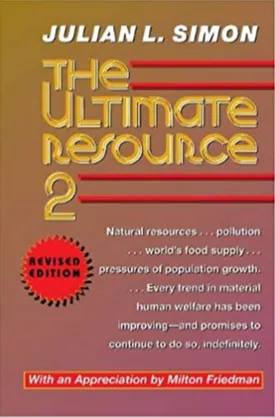The Ultimate Resource 2 by Julian Simon
"The Ultimate Resource 2" by Julian Simon is an important book for anyone interested in economics. Written by an esteemed professor of business administration and public policy at the University of Maryland, the book tackles some of the most pressing economic issues of our time and offers a compelling argument for the power of human ingenuity and adaptation. It is a must-read for anyone looking to expand their understanding of the economic landscape and make better decisions.
At the heart of the book is a core philosophy that the only ultimate resource is mankind itself. In an often-overlooked fact, Simon explains that human creativity, innovation, and adaptation are the primary drivers of both economic and technological growth. He provides a detailed explanation of how this is the case, pointing to examples from around the world. He then goes on to provide detailed evidence to support his point, showing how governments and institutions have curbed economic progress by acting as a barrier to new developments and innovations.
Simon goes on to explore how human progress can only occur when there are incentives and proper conditions in place to foster the kind of innovation and creativity necessary to spur economic development. He covers the importance of adequate education, reliable infrastructure, vibrant markets, and a supportive legal system in assisting the growth of human capabilities.
In its final chapters, the book also turns its focus on environmental concerns and how they can impact economic decisions. Simon argues that the environment is actually a key resource, and that its protection and preservation should be coupled with economic growth. He examines the various interventions that have been put in place to protect the environment over the years and how their success should be measured not just in terms of dollars saved, but in terms of global well-being.
In the end, Julian Simon provides an engaging and highly informative read that should be of interest to anyone interested in economics, resource management, or the environment. His analysis and insight into the power of human ingenuity and adaptation will leave readers inspired, and perhaps, better prepared to make informed decisions in the future. With this book, Simon offers an important piece of economic thinking that is both applicable and timeless.

